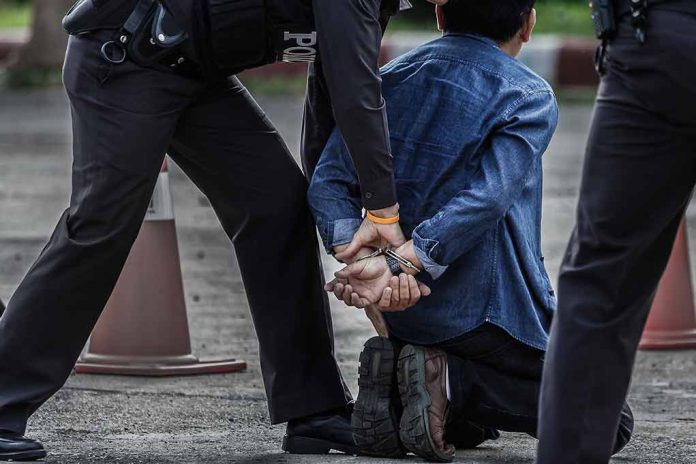
The arrest of five individuals in Florida has unveiled a complex web of organized crime linked to a notorious Venezuelan gang, leaving local and federal agencies grappling with the implications of these developments.
Key Takeaways
- The Polk County Sheriff’s Office arrested five individuals associated with the Tren de Aragua gang, including confirmed members and associates.
- The group’s criminal activities involved liquor store robberies, resulting in over $30,000 in losses.
- Franklin Jimenez-Bracho, arrested in Osceola County, was wanted by Interpol for serious crimes.
- The Trump administration has been working to deport noncitizens linked to the gang under the Alien Enemies Act.
Florida Arrests Shed Light on Tren de Aragua Gang Activities
On March 20, 2025, the Florida Department of Law Enforcement announced the arrest of Franklin Jimenez-Bracho, highlighting the multinational reach of the Tren de Aragua gang. Jimenez-Bracho and his associates were linked to a series of liquor store robberies across central Florida, including an attempted theft of $3,200 worth of premium liquor. The arrests signify a critical step in combating organized crime in the region.
The detained individuals face first-degree felony charges and are under scrutiny for racketeering. Authorities confirmed that Jimenez-Bracho was sought by Interpol for various serious crimes, including extortion and human trafficking. The operation reveals the extensive network of the Tren de Aragua gang, which has significantly impacted several U.S. states.
MUST WATCH: Polk County Sheriff Grady Judd puts illegal immigrant and Venezuelan Tren de Aragua gangbanger on blast after the man broke down and started crying like a baby after being arrested for robbing more than three dozen liquor stores across central Florida. “At one point… pic.twitter.com/xIkKvrcmhG
— RedWave Press (@RedWave_Press) April 20, 2025
Federal Government’s Response and Legal Challenges
The Trump administration is leveraging the Alien Enemies Act to initiate deportations, targeting individuals linked to the Tren de Aragua gang. U.S. Secretary of State Marco Rubio confirmed an agreement with El Salvador to accept deportees, aiming to prevent potential threats to national security.
However, the Supreme Court recently blocked deportations, siding with the American Civil Liberties Union against using wartime powers in this context. The court’s decision brings into question the administration’s strategy, emphasizing the need for due process in immigration proceedings.
That’s our great sheriff Grady Judd!🙏 https://t.co/k810Pmek1T
— cynthia ruffalo (@hypnonurse59) April 19, 2025
Broader Implications of Gang Activity in the U.S.
Tren de Aragua’s presence highlights vulnerabilities in the U.S. immigration system. Critics argue the narrative surrounding the gang is politically charged, amplifying fears of foreign criminal elements. Nonetheless, the administration remains committed to using available legal tools to protect citizens from potential threats.
Law enforcement is working to dismantle the gang’s operations beyond Florida, with activities confirmed in multiple states. The challenge remains balancing national security concerns with rights-based approaches, a debate that continues to shape America’s immigration policies.





